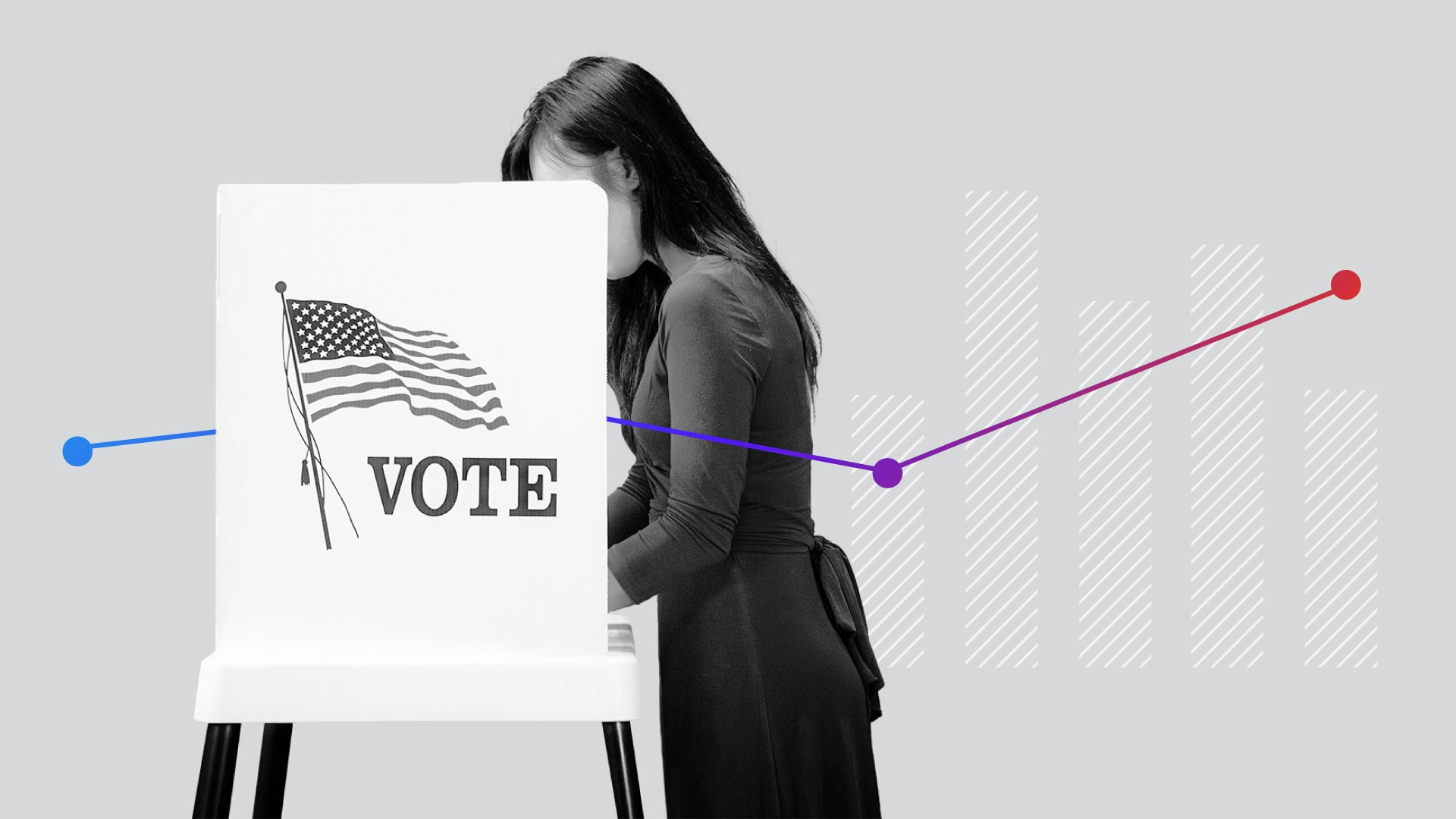Two Weeks Out, Neither Trump Nor Harris Have Notable Swing-State Advantage

SWING-STATE ANALYSIS
On behalf of Bloomberg News, Morning Consult is conducting a monthly seven-state study in 2024 political swing states to uncover where voters stand on key issues surrounding the presidential election. Read our previous analysis here: Sept. 2024 | Aug. 2024 | July 2024 | June 2024 | May 2024 | April 2024 | March 2024 | Feb. 2024 | Jan. 2024 | Dec. 2023 | Nov. 2023 | Oct. 2023
Key Takeaways
Harris holds slight advantages among likely voters in Michigan, Pennsylvania and Nevada, while Trump has minor edges in Georgia and North Carolina. Along with identical levels of support in Arizona and Wisconsin, the results from all seven states are within the surveys’ margins of error.
While the bulk of both Harris’ and Trump’s supporters are most likely to say their vote is an expression of support for their chosen candidate, the Democrat’s are less likely to do so than the Republican’s (73% to 82%).
By a narrow 45% to 41% margin, likely swing-state voters are more likely to expect Harris will win than Trump, in line with where things stood in August. Harris’ supporters are slightly more likely than Trump’s to predict their chosen candidate will win.
Data Downloads
Pro+ subscribers are able to download the datasets that underpin Morning Consult Pro's reports and analysis. Contact us to get access.
Sign up to get the latest data and analysis on how business, politics and economics intersect around the world.
Neither Vice President Kamala Harris nor former President Donald Trump hold substantial leads across the 2024 battleground, elongating a nail-biter contest with less than two weeks to go until Election Day.
According to Morning Consult’s swing-state surveys on behalf of Bloomberg News, Harris holds slight advantages among likely voters in Michigan, Pennsylvania and Nevada, while Trump has minor edges in Georgia and North Carolina.
Neither Harris nor Trump hold major leads in the swing-states

Along with identical levels of support in Arizona and Wisconsin, the results from all seven states are within the Oct. 16-20 surveys’ margins of error, meaning no candidate has a clear advantage.
Across the map, Harris and Trump are virtually at parity with their own party’s voters and those who backed their respective nominees in 2020, similar to findings from our daily national-level tracking.
The surveys come as Harris and her allies have increasingly sought to cast Trump as a threat to the country in the final days of the campaign. While many voters do see the Republican nominee as potentially harmful, such rhetoric has hardly moved the needle.
Bulk of likely voters in swing states see Trump as dangerous

According to the latest survey, 49% of likely swing-state voters view Trump as “dangerous” compared with 35% who say the same of Harris, in line with the shares who said so in July, August and September. The data tells a similar story when voters were asked which of the two candidates are “too old” or “mentally fit,” with the bulk of the swing-state electorate aligning with Trump on the age question and Harris on the competency question.
Trump’s swing-state backers are more positively motivated than Harris’

While the bulk of both Harris’ and Trump’s supporters are most likely to say their vote is an expression of support for their chosen candidate, the Democrat’s are less likely to do so than the Republican’s (73% to 82%). The gap is widest in Wisconsin, where nearly 2 in 5 Harris supporters say they’re voting against Trump compared to 1 in 5 of his supporters who say they are voting against her.
Among independent voters in the mix, those backing Harris are far less likely to cast their support as a vote in favor of her compared with those backing Trump (54% to 70%).
The bottom line
As early voting begins and Election Day approaches, swing-state voters are more confident in a Harris victory than a Trump win after ballots are counted next month, but the figures are very close.
Swing-state likely voters narrowly expect Harris victory

By a narrow 45% to 41% margin, likely swing-states voters are slightly more likely to expect Harris will win, in line with where things stood in August. Harris’ supporters are slightly more likely than Trump’s to predict the same (83% to 79%), but the figures — often seen as an arbiter of energy for candidates — are, like everything in this contest, extraordinarily close.
More to the point: Our October survey shows virtually no movement in either candidate’s favor in the final weeks of the contest, be it in the head-to-head contest, their popularity or how voters perceive them, or even the underlying motivating factors among their supporters.
This survey and others we have conducted in recent weeks continue to suggest neither side clearly has the upper hand, leaving the fate of power in Washington unpredictable.
Eli Yokley is Morning Consult’s U.S. politics analyst. Eli joined Morning Consult in 2016 from Roll Call, where he reported on House and Senate campaigns after five years of covering state-level politics in the Show Me State while studying at the University of Missouri in Columbia, including contributions to The New York Times, Politico and The Daily Beast. Follow him on Twitter @eyokley. Interested in connecting with Eli to discuss his analysis or for a media engagement or speaking opportunity? Email [email protected].